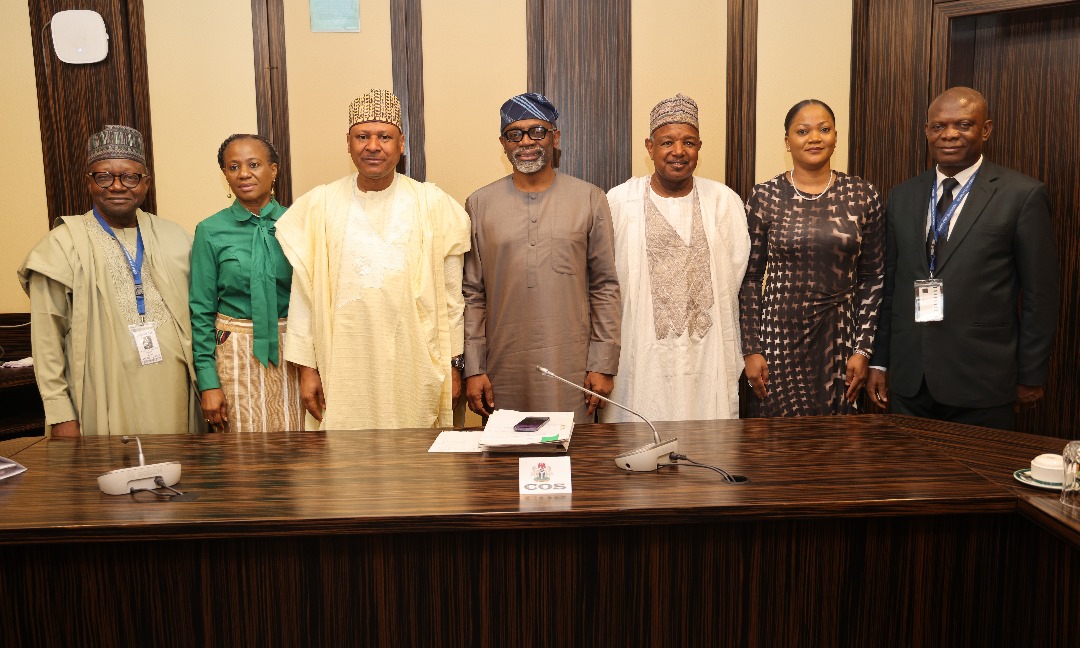Setting the Record Straight on Nigeria’s Development Loans: A Response to Senator Ndume
Once again, the Independent Media and Policy Initiative (IMPI) finds it necessary to set the public record straight following Senator Mohammed Ali Ndume’s recent and deliberate misinterpretation of facts surrounding Nigeria’s development loans. His remarks appear calculated to cast aspersions on President Bola Ahmed Tinubu’s reform-focused agenda.
It is particularly disappointing that a senior legislator like Senator Ndume—now in his fourth consecutive term in the Senate—would address Nigeria’s national debt without providing adequate context or enlightening the public. During a recent television interview, he questioned the rationale and transparency behind borrowings totaling $9.45 billion (approximately N13 trillion) since June 2023. Unfortunately, his comments lacked the nuance and factual grounding expected of someone in his position.
With public concerns already heightened around government borrowing, it was incumbent upon Senator Ndume to present a comprehensive picture. Nigeria’s total public debt, while rising in naira terms to N144.67 trillion, actually declined in dollar terms—from $108.23 billion in December 2023 to $94.23 billion by December 2024. This $14 billion reduction within a year represents an unprecedented fiscal achievement not seen since 2006 and warrants commendation, not misrepresentation.
Rather than acknowledging this progress, the Senator claimed—without evidence—that the loans are being directed toward “non-tangible” projects. This criticism is both shortsighted and uninformed. The reality of 21st-century development extends beyond roads and bridges; it encompasses human capital investments such as education, healthcare, social protection, and gender inclusion. These are essential to building a productive and resilient society.
Countries like India and China have demonstrated this approach effectively—strategically developing both physical infrastructure and human capacity. The federal government’s so-called “intangible” projects are critical and valid areas of investment, even if they are not physically quantifiable. No commercial bank would fund these initiatives due to their non-commercial nature, which is precisely why multilateral institutions like the World Bank and IMF exist: to fill these vital funding gaps.
It is important to clarify that these are not commercial bank loans. They are concessionary, development-backed loans—typically featuring low interest rates, tenures up to 40 years, and multi-year moratoria. Such terms make them fiscally responsible and strategically sound tools for national development.
In fact, development economics recognises that sustainable growth hinges not just on physical assets but on empowering citizens to contribute meaningfully to the economy. That is the kernel of the World Bank’s philosophy—supporting countries in building a strong human capital base through education, health, and social welfare.
To that end, the World Bank accounted for nearly 80% of Nigeria’s multilateral debt in 2024, rising modestly from $21.15 billion in 2023 to $22.32 billion in 2024—a 5.5% increase. Meanwhile, Nigeria’s debt to the IMF decreased significantly from $2.47 billion to $800.23 million—a 67.6% drop. This clearly demonstrates the Tinubu administration’s balanced approach: securing new credit only where it aligns with development goals, while actively reducing the overall debt burden.
Contrary to Senator Ndume’s insinuations, these loans did not bypass legislative oversight. Every World Bank loan undergoes internal approval within the institution and is then subjected to scrutiny and approval by Nigeria’s National Assembly. In 2024, the World Bank approved six projects for Nigeria valued at $4.25 billion. Yet, actual disbursements between 2023 and 2024 stand at just $2.36 billion—far below the $9.5 billion figure the Senator claimed.
It is, therefore, misleading and disingenuous to suggest that the Tinubu administration has accumulated reckless or excessive debt. The facts show a government that is responsibly managing its debt portfolio—balancing new loans for essential sectors with efforts to pay down legacy debts.
What is particularly troubling is the apparent politicisation of these facts by Senator Ndume. Misrepresenting data to undermine a reform-oriented administration not only misleads the public but weakens the credibility of the legislative institution he represents. Such deliberate distortions have no place in constructive national discourse.
We urge all public officials—especially those in leadership—to prioritise accuracy, transparency, and responsibility when engaging in matters of national significance. Nigerians deserve nothing less than the truth.


